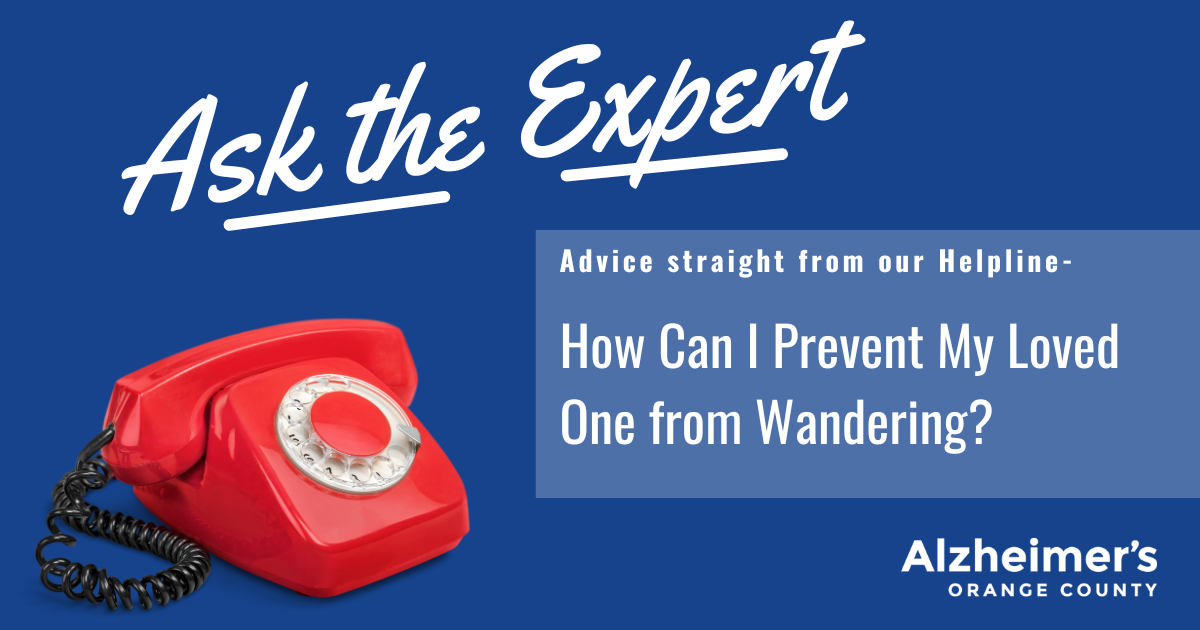As symptoms worsen and cognitive decline affects daily functioning, individuals with dementia may develop a common yet dangerous behavior known as wandering. Wandering is when someone with dementia walks around aimlessly or leaves home, causing stress for the person, family, and their care partner.
When a person wanders, they can easily be exposed to life-threatening situations such as harsh weather conditions, getting lost, injury, or even death. To prevent this, it is helpful to understand what causes wandering behaviors and what necessary steps to take in order to keep a loved one from leaving the home unattended and ensure their safety.
Some common causes of wandering include:
- Memory loss: People with dementia may forget where they’re going or what they were doing.
- Confusion: They may not recognize their surroundings or may feel disoriented.
- Stress: They may be experiencing pain, anxiety, or agitation.
- Boredom: They may not be getting enough exercise or may be bored.
- Unmet needs: They may be lonely, hungry, or want to fulfill a past obligation.
- Medications: Some medications, like antipsychotics or sedatives, can increase
the risk of wandering.
Tips to Prevent Wandering
Below are some ways to divert the attention away from using the door and leaving the home.
- Keep doors locked. Consider a keyed deadbolt, or add another lock placed up high or down low on the door. If the person can unlock it, you may need a new latch or lock.*
- Use loosely fitting door knob covers. These allow the cover to turn instead of the actual knob.*
- Place STOP, DO NOT ENTER, or CLOSED signs on doors.
- Place small scenic posters, curtains, brightly colored streamers, or wallpaper over the door.
- Place removable gates.
- Install safety devices that limit how many windows can be opened.
- Install an “announcing system” that chimes when a door is opened.
- Secure the yard with fencing and a locked gate.
- Keep shoes, keys, suitcases, coats, hats, and other signs of departure out of sight.
- Do not leave a person with Alzheimer’s who has a history of wandering unattended.
*Locked doors and door knob covers should only be used when a care partner is present, as they may pose a hazard in an emergency.
Managing wandering can be challenging, but staying informed and taking preventative measures can create a safer environment and protect your loved one. Remember, you are not alone. For support and guidance, call our free helpline at 844-373-4400, available Monday–Friday, 8:30 am–5:00 pm.
Additional Reading:
GPS & Technology Options to Reduce the Risk of Wandering
Learn about various product options that help with locating and identifying a wandering loved one. Read here.
Home Safety and Alzheimer’s Disease
Get informed on how to create a safer home environment for a person with Alzheimer’s disease and avoid accidents. Read here.
Activities with Your Loved One
Explore different activities to enjoy with a loved one according to the stage they are in. Read here.


